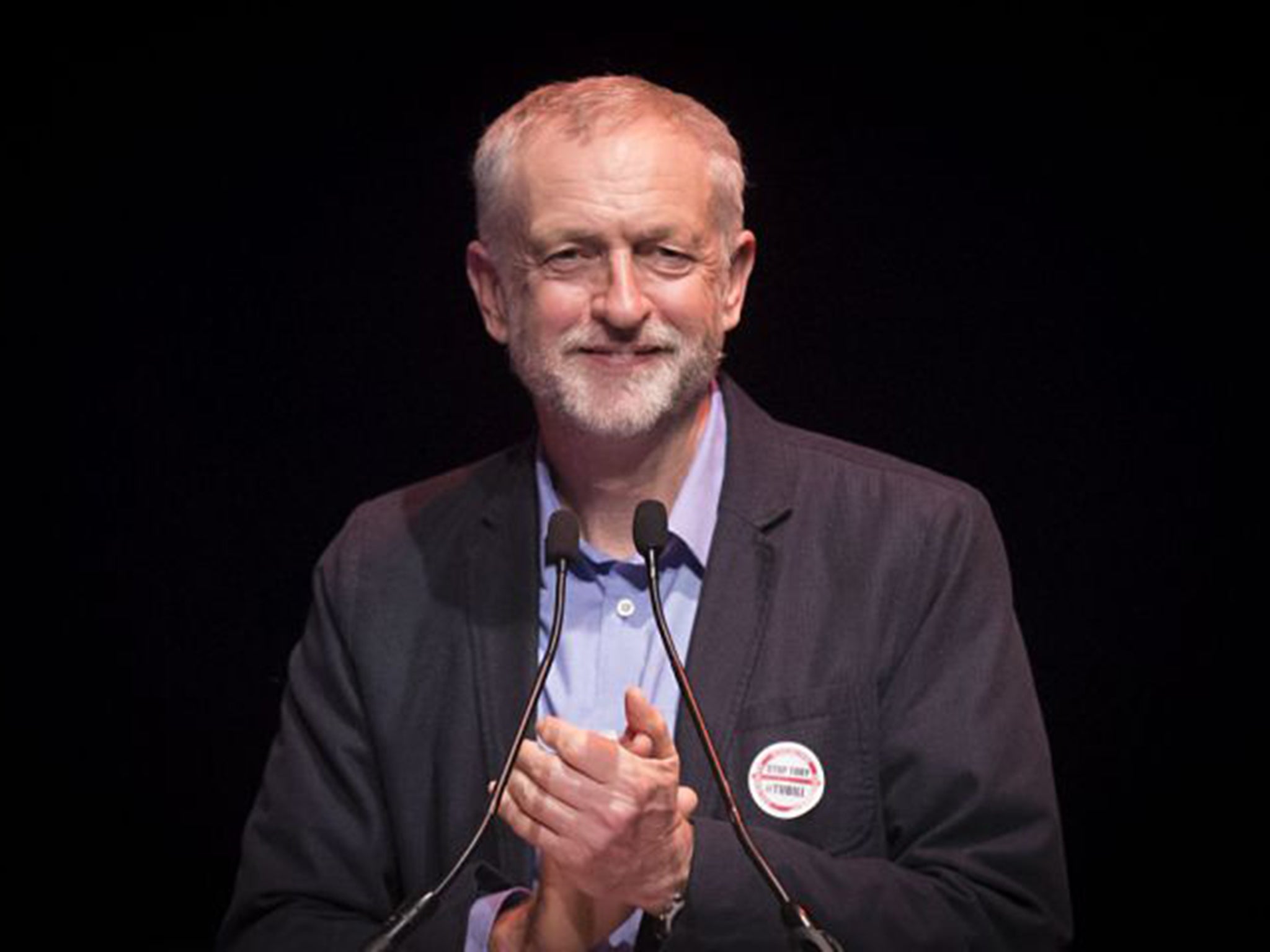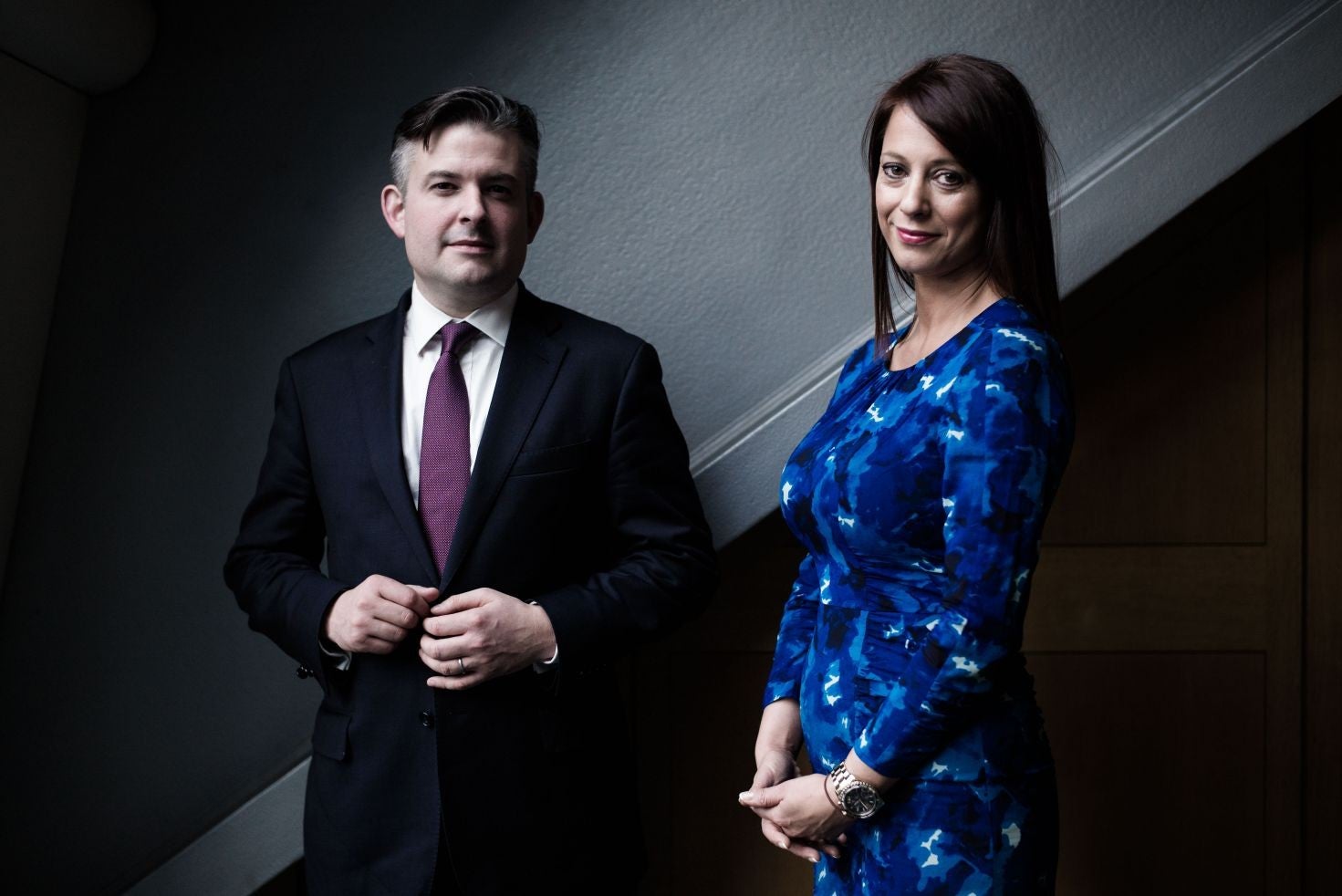Momentum: Controversial left-wing group to debate joining Labour in boost to Jeremy Corbyn
This could give the organisation a seat on Labour’s official ruling body, the National Executive Committee

Your support helps us to tell the story
From reproductive rights to climate change to Big Tech, The Independent is on the ground when the story is developing. Whether it's investigating the financials of Elon Musk's pro-Trump PAC or producing our latest documentary, 'The A Word', which shines a light on the American women fighting for reproductive rights, we know how important it is to parse out the facts from the messaging.
At such a critical moment in US history, we need reporters on the ground. Your donation allows us to keep sending journalists to speak to both sides of the story.
The Independent is trusted by Americans across the entire political spectrum. And unlike many other quality news outlets, we choose not to lock Americans out of our reporting and analysis with paywalls. We believe quality journalism should be available to everyone, paid for by those who can afford it.
Your support makes all the difference.The controversial left-wing campaign group Momentum will officially debate whether to join the Labour Party when it holds its first national meeting next month, its first since the group’s formation in the wake of Jeremy Corbyn’s leadership victory.
Momentum, which MPs have accused of trying to be a “party within a party”, has called its first “national committee” meeting in January, when up to 60 members will agree a new leadership team, membership fees, and official links with a host of trade unions – including those not linked to Labour.
But, in a controversial move, the committee is also set to consider whether to apply to be affiliated to the Labour Party as a “socialist society” like, for example, the Fabian Society and the National Union of Labour and Socialist Clubs.
This could give the organisation – made up of tens of thousands of Corbyn backers who registered as £3 supporters during the leadership election – a seat on Labour’s official ruling body, the National Executive Committee, further strengthening Mr Corbyn’s grip on the party.
It comes amid growing concern among MPs over the influence of left-wing activists. Teesside MP Tom Blenkinsop has called on Mr Corbyn to rein in his supporters in Momentum and the union Unite after being forced to call in the police when an activist turned up at his constituency late on 18 December allegedly threatening to “fight” him.
A union organiser in Teesside also sent a threatening email to another Labour MP in the North-east, Alex Cunningham, warning that “the lads” would turn up outside his home to protest against his perceived lack of support in a campaign against a local employer.
Mr Blenkinsop said: “It’s more important than ever that the leadership actually protect MPs from the mutually destructive forces of Momentum and cross-over elements of Unite.
“It is clear that latent forms of [the hardline] Militant are on the rise and are being allowed to undermine long standing, disciplined, sensible, organised Labour. The offer now to the country is a left-wing party, but certainly not a working-class party. These hard-left forces ... have never been mainstream organised working-class Labour. They now conspire under the name of Momentum.”
A senior source in Momentum, however, rejected claims the organisation was trying to “undermine” sitting MPs. The source also rejected claims Momentum was giving hard-left agitators from the 1980s, many of whom were expelled for links to Militant, a way back into the party.
He said: “We’re not going to have them back .... They’ve spent the last 25 years slagging off the Labour Party.” He added that members of other political parties opposed to Labour would not be allowed to join Momentum, which is expected to levy an annual fee of £10.
The former home secretary Lord Blunkett, who sat on Labour’s ruling council in the 1980s when Militant hardliners were expelled, told The Independent on Sunday the party needed to be “extremely afraid of the threat of being taken over”.
He said: “When I talk to most people about democratic centralism, their eyes glaze over. They’ve read very little about Bolsheviks and Mensheviks, and how they expand their power by getting a significant majority in each layer of the decision making process. They are in danger of not knowing before it is too late.”
He warned that Mr Corbyn’s supporters would target “the takeover of the National Executive Committee”.
Labour hits road to see why it failed to take the seats it won in 1992
Two prominent members of Jeremy Corbyn’s shadow cabinet have organised a “1992 tour” in a bid to rediscover Labour’s “soul” and find out why England’s towns and suburbs are abandoning the party.
Gloria De Piero and Jonathan Ashworth will visit eight marginal seats which the party won under Neil Kinnock but lost in 2015 as voters swung to the Tories.
The frontbench pair said private analysis of May’s “crushing” election defeat revealed that there were are a “whole raft of seats” which Labour won off the Tories in 1992, but which are now “even further away” from winning than in 2010.
It found that while four out of 10 “urban liberal voters” backed Ed Miliband’s Labour – the party did “very poorly” among “suburbanites and people living in small and medium sized towns”.
Support from pensioners fell by 8 per cent – with the party losing votes to Ukip among the poorest over-65s reliant on the basic state pension or living in specialised accommodation.

Ms De Piero said one of the problems was that Labour failed to defend its record in government. But she added: “Did we lose a little bit of soul along the way – I think we probably did. Jeremy appealed to a lot of members because he had soul.”
While boundary changes have blurred the picture, the facts remain stark – in the 23 years since voters returned John Major to power, Labour has lost 69 seats that it won in the 1992 election defeat.
Ms De Piero says the party needs to face up to the scale of this year’s election defeat if it is to stand any chance of returning to power in 2020. “We can’t lose sight of the fact that the Conservatives got two million more votes than Labour.”
The Ashfield MP said her former coal mining seat was now surrounded by seats which had small Tory majorities in 2010 – but now had “big” Tory majorities.
Mr Ashworth said Labour needed to “understand what’s going on”. He said: “The analysis that Gloria and I did over the summer showed that in university cities the Labour vote went sky high.
“In cities which have got a large black and ethnic minority population the Labour vote increased. And also in areas where there is a high proportion of the population very reliant on benefits the Labour vote increased hugely. So you get, for example, seats like mine, or seats in Birmingham or Manchester, Liverpool – with huge increases in their majorities.
“But at the same time in suburbs and towns Labour seems to be falling further behind. So seats like Sherwood, which had a [Tory] majority of about 200 in 2010, has now got a majority of 4,000.”
The pair will visit eight former industrial seats including Cannock Chase, Sherwood and Nuneaton – the infamous “bodyblow seat” which signalled Mr Miliband’s defeat.
They will also visit Rossendale & Darwen, Pendle, Kingswood, Southampton Itchen and Ipswich, as well as the Welsh seat of Gower, which fell in 2015 to the Tories.
Mr Ashworth said: “You would have thought on election night they were low-hanging fruit – they should’ve been in the bag. But not only were we not gaining them, the Tories were increasing their majority.
“The best way to find out what people think is, funnily enough, to get out of Westminster,” Ms De Piero said. “When you’ve had a defeat like we have, you have to listen. But there’s no point in doing this if you are not prepared to take the medicine.”
Tom McTague
Join our commenting forum
Join thought-provoking conversations, follow other Independent readers and see their replies
Comments